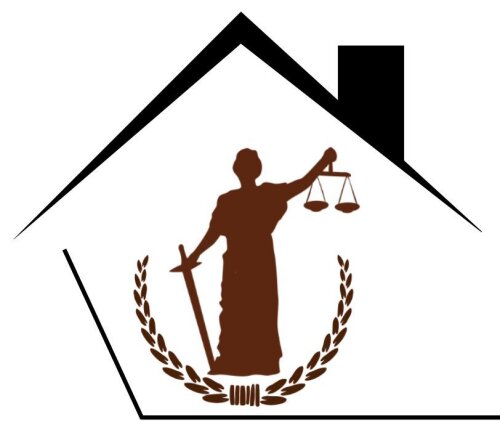Best Franchising Lawyers in Santa Marta
Share your needs with us, get contacted by law firms.
Free. Takes 2 min.
List of the best lawyers in Santa Marta, Colombia
About Franchising Law in Santa Marta, Colombia
Franchising in Santa Marta, Colombia is part of the broader commercial landscape that is experiencing steady growth as both local and international brands seek to expand their footprint. Franchising allows entrepreneurs and businesses to operate under a recognized brand and proven business model. The process involves an agreement between the franchisor, who owns the brand and business model, and the franchisee, who operates a business using the brand’s trademarks, know-how, and support.
Colombian laws regulate franchising mainly through civil and commercial rules rather than a specific franchising statute. Although Santa Marta is a vibrant regional city, franchising arrangements here typically follow the same national guidelines that apply throughout Colombia, with some local business and regulatory nuances. Understanding the local business environment and complying with Colombian regulations is crucial for both franchisors and franchisees operating in Santa Marta.
Why You May Need a Lawyer
Franchising can be a profitable business move, but it comes with legal complexities. Here are common situations where you may need to consult a lawyer:
- Reviewing or drafting a franchise agreement before signing to ensure your interests are protected
- Understanding your rights and obligations as a franchisor or franchisee
- Dealing with disputes regarding territory, fees, operations, or contract breach
- Complying with Colombian laws on advertising, trademarks, and intellectual property
- Negotiating contract renewals, transfers, or terminations
- Assistance with registering or protecting your brand locally
Legal guidance can help you avoid costly mistakes, minimize risks, and ensure your franchise operates smoothly under local regulations.
Local Laws Overview
Colombia does not have a separate law dedicated exclusively to franchising. Instead, the main legal framework consists of:
- The Colombian Commercial Code: Governs commercial contracts, including franchise agreements
- Civil Code: Covers general contract law principles, including good faith and obligations
- Trademark and Intellectual Property Law (Decision 486 of the Andean Community): Protects trademarks, trade secrets, and know-how within franchise operations
- Consumer Protection Statute (Law 1480 of 2011): Sets standards for advertising, marketing, and consumer rights
- Requirements to register trademarks with the Superintendence of Industry and Commerce (SIC)
While the franchise agreement itself is key, related regulations-such as labor law, tax law, and local permits-also play a critical role. In Santa Marta specifically, you must comply with the local chamber of commerce, zoning regulations, and health and safety permits, depending on the nature of the franchise.
Frequently Asked Questions
What is a franchise agreement?
A franchise agreement is a legally binding contract between a franchisor and a franchisee that details the terms under which the franchisee can operate a business using the franchisor’s brand, systems, and support.
Do franchise agreements require registration in Colombia?
Franchise agreements themselves do not require special registration, but trademarks and intellectual property must be registered with the Superintendence of Industry and Commerce (SIC) for legal protection.
Can a foreign franchisor operate in Santa Marta?
Yes, foreign franchisors can grant franchises in Santa Marta, provided they comply with Colombian commercial, tax, and intellectual property law, and appoint an authorized representative if necessary.
What are the main obligations of a franchisee?
A franchisee must comply with the operational standards set by the franchisor, pay the required fees or royalties, use the brand as permitted, and maintain confidentiality regarding business know-how.
Can the franchisee sell or transfer the franchise?
This depends on the franchise agreement. Typically, transfers or sales require the franchisor’s prior written consent and adherence to specified conditions.
What happens if either party breaches the franchise agreement?
If a breach occurs, the non-defaulting party may pursue remedies such as termination, damages, or specific performance as outlined in the agreement and under Colombian law.
How long do franchise agreements usually last?
The term varies, but agreements often last between five and ten years. Renewal terms and conditions are specified in the agreement.
Is there any pre-contractual disclosure requirement?
Although Colombia does not have formal pre-contract disclosure laws for franchising, it is considered good practice for franchisors to provide clear and honest information to potential franchisees to avoid disputes.
What taxes are relevant for running a franchise in Santa Marta?
Franchisees must comply with income tax, VAT, local industry and commerce tax, and other applicable levies. It is recommended to consult a tax specialist familiar with the Santa Marta area.
Does Colombian labor law apply to franchise employees?
Yes, franchisees are generally considered independent businesses and must fully comply with Colombian employment and labor law regarding their workers.
Additional Resources
The following resources can help you better understand franchising in Santa Marta, Colombia:
- Superintendence of Industry and Commerce (SIC) - For trademark registration and business oversight
- Chamber of Commerce of Santa Marta - For company registration, permits, and business guidance
- Colombian Association of Franchises (Colfranquicias) - For franchising industry insights and networking
- Ministry of Commerce, Industry and Tourism - For national business regulations and investment incentives
- Local law firms and business consultants specializing in franchising
Next Steps
If you are considering entering into a franchise agreement in Santa Marta or are facing any legal challenges related to franchising, the following steps are recommended:
- Identify your main objectives and concerns, whether as a franchisor or franchisee
- Gather all documents related to your prospective or current franchise agreement
- Consult with a local lawyer experienced in franchising, commercial law, and intellectual property
- Ensure all trademarks and proprietary elements are protected and registered with the appropriate authorities
- Register your business and comply with local permits and tax obligations
- Ask your lawyer to explain your rights and responsibilities under Colombian law
Legal advice tailored to your particular circumstances is essential for success in franchising in Santa Marta. Take proactive steps now to secure your business’s future and avoid legal complications.
Lawzana helps you find the best lawyers and law firms in Santa Marta through a curated and pre-screened list of qualified legal professionals. Our platform offers rankings and detailed profiles of attorneys and law firms, allowing you to compare based on practice areas, including Franchising, experience, and client feedback.
Each profile includes a description of the firm's areas of practice, client reviews, team members and partners, year of establishment, spoken languages, office locations, contact information, social media presence, and any published articles or resources. Most firms on our platform speak English and are experienced in both local and international legal matters.
Get a quote from top-rated law firms in Santa Marta, Colombia — quickly, securely, and without unnecessary hassle.
Disclaimer:
The information provided on this page is for general informational purposes only and does not constitute legal advice. While we strive to ensure the accuracy and relevance of the content, legal information may change over time, and interpretations of the law can vary. You should always consult with a qualified legal professional for advice specific to your situation.
We disclaim all liability for actions taken or not taken based on the content of this page. If you believe any information is incorrect or outdated, please contact us, and we will review and update it where appropriate.









